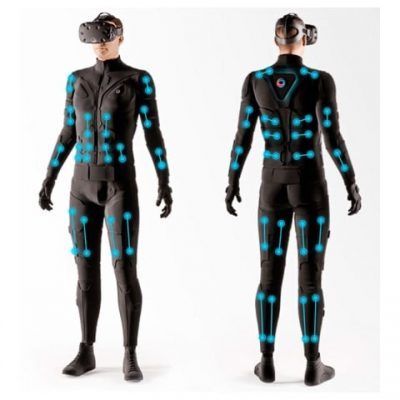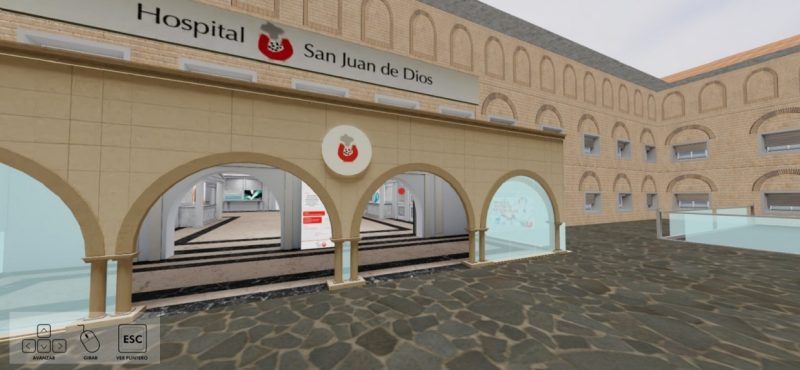If there is one word that distinguishes OLIGOFASTX and its philosophy, it is innovation. Thanks to our research efforts, we are able to advance our objective, which is none other than to improve the quality of life of patients affected by rare diseases that have no treatment.
And this desire for innovation leads us to constantly investigate different strategies, technologies and techniques not only in the field of applied biology, but also in the development of tools that facilitate any point of the process on which we work.
For this reason, we cannot fail to keep an eye on the evolution of a digital concept that is becoming more and more important and that can open up new avenues for research and collaboration: the metaverse.
But… what is the Metaverse?
According to FundéuRAE, the word metaverse is used in various fields to refer to virtual or alternative worlds.
The concept was first made known by the word “cyberspace” in William Gibson’s 1984 novel “Neuromancer”. But it was not until 1992 that science fiction novelist Neal Stephenson, coined the term “metaverse” in his novel “Snow Crash” to describe a virtual world, where the protagonist Hiroaki Hiro, the pizza delivery boy in the real world and warrior prince (samurai) in the metaverse, recounts his adventures and misadventures in a new virtual underworld.
A metaverse is a virtual/digital world that acts as a metaphor for the real one, where the user interacts by means of an avatar through a virtual reality device that makes him/her believe that he/she is really immersed in it, interacting with all its elements and eliminating the physical limitations imposed by the real world. It is like teleporting to another world by means of virtual reality devices or
other add-ons that allow interaction within the digital ecosystem.

How will the metaverse affect our daily lives?
Evidently, the adoption of the new technology will also mark the pace at which brands, companies and institutions incorporate the new scenario. But here are a few thoughts on the world of healthcare.
Before the COVID 19 pandemic, only 43% of healthcare facilities were able to provide patients with remote care (telemedicine). Today, this percentage is 95%.
Undoubtedly, this will persist in the metaverse. However, virtual reality – a key technology that enables the next-level immersion that partly qualifies a platform or application as part of the metaverse – opens up a whole new range of possibilities.
Scans and tests can be performed at a local center, but the data could be transferred to the chosen specialist anywhere in the world, to give just one example.
Our digital twins, i.e. our avatars in the virtual world, could be an exact copy of us, and by means of haptic suits we can transmit valuable information about our body via the Internet and in real time.
In fact, in Spain it hosted the first first worldwide event on Health in the metaverse , on October 27, 2022 under the title of HealthCare Congress in the Metaverse itself.
Organized by Hospital Metaverso and in collaboration with Uttopion and the Complutense University of Madrid, the event addressed the key issues in the application of this technology in the delivery and organization of healthcare services. and organization of healthcare services in all their dimensions. in all its dimensions.
As stated by Hospital Metaverso, the advance of technology has facilitated new spaces that are opening up virtual health care options, with interaction that can enable special use of scientific evidence and artificial intelligence in the care process. with traceability and validation in blockchain.
In addition, experts point out that it also allows for participation and interaction with other professionals and hospital services. participation and interaction with other professionals and different hospital services in the different hospital services in which the patient and the care team are located.
In fact, the San Juan de Dios Hospital in Zaragoza is already making progress in its particular metaverse.


On the other hand, Metaverso enables teamwork processes and meetings for clinical sessions that are much more efficient than traditional ones, according to Metaverso Hospital. Or, also, the clinical research strategies that take advantage of the “enormous that take advantage of the “enormous potential” of managing large volumes of clinical data. In this regard, the Big Data Steering Group 2022-2025 created by the European Medicines Agency stands out.
There is no doubt that the development of these technologies will allow us to incorporate new technological ways of collaborative work in the future. From Oligofastx we follow closely all the evolutions to detect potential ways of improvement to incorporate to our processes.
See you in the metaverse?
Sources:
https://gacetamedica.com/profesion/espana-primer-evento-nacional-internacional-salud-metaverso/
https://gacetamedica.com/investigacion/nueva-alianza-para-impulsar-el-metaverso-en-el-sector-salud/
https://es.wikipedia.org/wiki/Metaverso

 Español
Español
